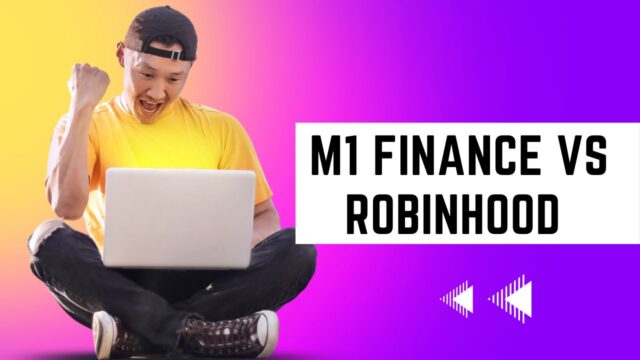
If you’re an investor who’s trying to decide between M1 Finance and Robinhood, you’re in luck. This blog post will cover a side-by-side comparison of the two platforms so that you can pick the right one for your needs. Let’s dive in!
Account Features
M1 Finance offers several features that make it stand out from other investment platforms. The platform has a portfolio builder feature which allows investors to easily customize their portfolios with ETFs or stocks. Additionally, M1 Finance allows investors to set up automatic investments and withdrawals, as well as recurring transfers into their accounts. They also have tax optimization strategies that help investors keep their taxes low. Finally, they offer zero account fees and no minimum balance requirements.
Robinhood on the other hand offers commission-free trades but does not offer any portfolio building tools or tax strategies like M1 Finance does. They also do not offer automatic investments or withdrawals, so investors must manually buy and sell stocks every time they want to make a trade. Robinhood does have margin trading available for advanced users, but this is not available on the basic version of the platform. Additionally, there is a minimum balance requirement of $2,000 for margin accounts.
Pricing & Fees
When it comes to pricing, M1 Finance has some great options with zero account fees and no minimum balance requirements. They also offer fractional shares which allow you to invest in stocks even if you don’t have enough money to buy whole shares at once. On top of that, they have great customer service with 24/7 phone support and email support during normal business hours.
Robinhood has no account fees either but they do have a minimum balance requirement of $2,000 for margin accounts which may be an issue for some investors who don’t have that much money to invest at once. Additionally, they do not have fractional shares so if you don’t have enough money to purchase whole shares at once then you won’t be able to invest in certain stocks with Robinhood. They also only offer email support during normal business hours which may be inconvenient for some customers who need help after hours or on weekends.
In conclusion, both M1 Finance and Robinhood are great options depending on your needs as an investor but there are some key differences between the two platforms that should be considered before making your final decision. M1 Finance offers more features such as portfolio building tools and tax optimization strategies while Robinhood offers more advanced trading options such as margin trading but has a minimum balance requirement for those accounts . Ultimately when choosing between these two platforms it all comes down to what type of investor you are and what features are most important to you when investing your hard earned money!


































